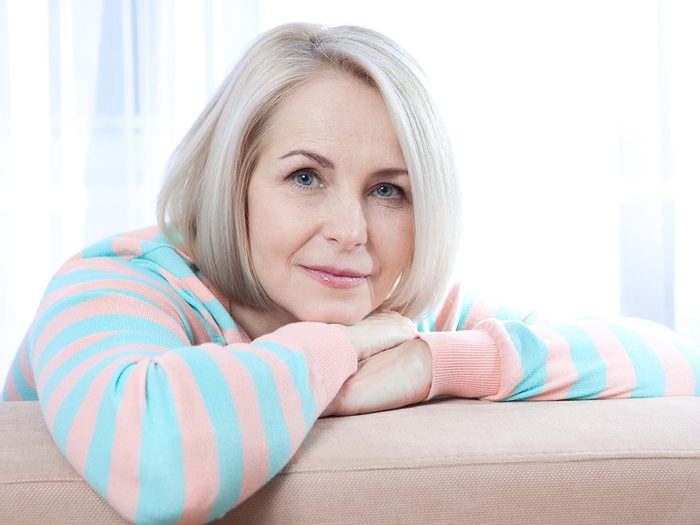
Managing the beast
Sometimes drinking coffee triggers them. Sometimes I wake up in the middle of the night, heat radiating off my chest, hair damp with sweat. Either way, hot flashes are not a welcome part of my life. But it seems like they’re here to stay — or at least until menopause does us part.
Unfortunately, they’re just one annoying symptom of perimenopause, the five to seven years leading up to menopause, the end of menstruation. Many women also suffer with mood swings and depression, sleep disruption, heavy menstrual bleeding and memory problems. And because perimenopause may last up to a decade, these symptoms can take a serious toll on your quality of life.
Check out the top 10 quiet signs you’re in perimenopause.
But the good news is that the worst of perimenopause can be managed — sometimes with lifestyle tweaks and herbal supplements, sometimes with medical intervention. Here’s how.
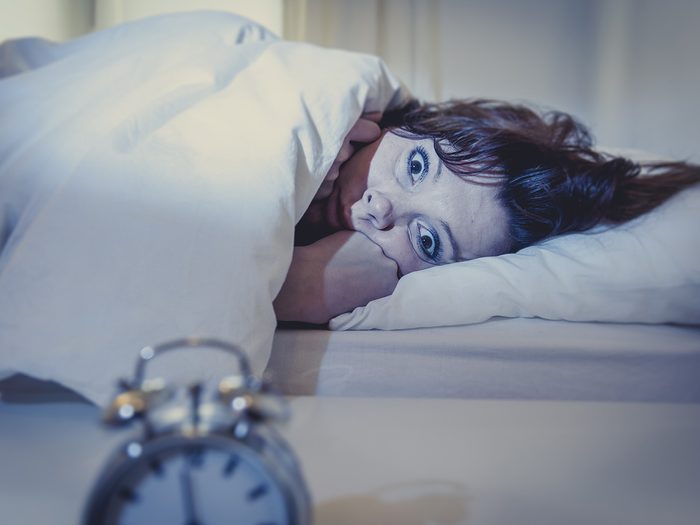
Symptom 1: Stolen sleep
“Sleep,” says Toronto’s Dr. Jennifer Pearlman, medical director and owner of Pearl MD Rejuvenation, “is the Holy Grail of health.” But falling levels of the hormone progesterone — characteristic of early perimenopause — can make falling and staying asleep a struggle for some women.
And if it’s not menopause or perimenopause, one of these unexpected reasons may be the cause of your lack of sleep.

The lifestyle fix
You may have heard it before, but a relaxing routine is often the key to a good night’s sleep. That means no electronics an hour before bedtime, or maybe having a bath and settling down in a cool dark room to help trigger rest — and that goes for everyone. When it comes to perimenopausal women, Pearlman adds that added stress management during the day can lead to more peaceful nights. “Get that to-do list out of the way so you’re not thinking about it when you’re lying down,” she says.
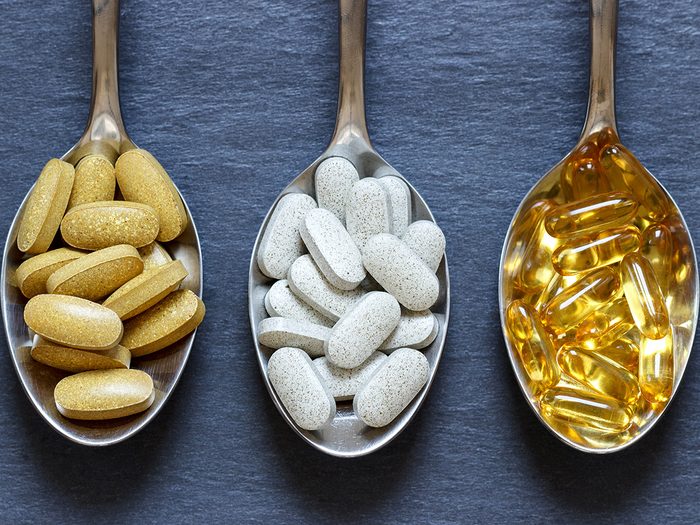
If you need extra help
Followed every restful rule, but the sleep fairy still won’t come? Up your game with a supplement. “I love magnesium,” says Pearlman, “It’s a mineral that may help promote a better night’s sleep.” She also recommends taking melatonin — a sleep-inducing hormone that helps regulate the sleep cycle and can improve sleep — in low doses, such as 3 mg. Your doctor can help you figure out a dosage that would work for you. Speaking of the doctor, for sleep problems at any age it’s recommended you talk to your doc to rule out conditions like sleep apnea or restless leg syndrome.
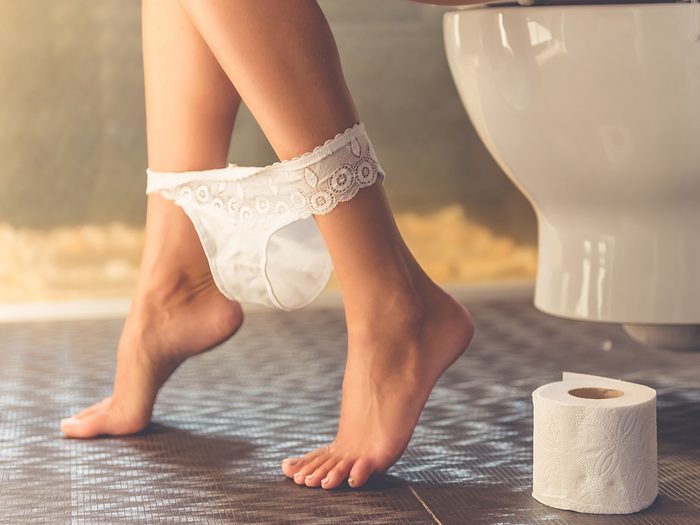
Symptom 2: Menstrual madness
Experiencing breast tenderness (ouch) or abnormal vaginal bleeding? Changing hormones during perimenopause may lead to rising (and unopposed) estrogen taht causes these symptoms.
What exactly is up with your period? Find out if you have one of these menstrual disorders.
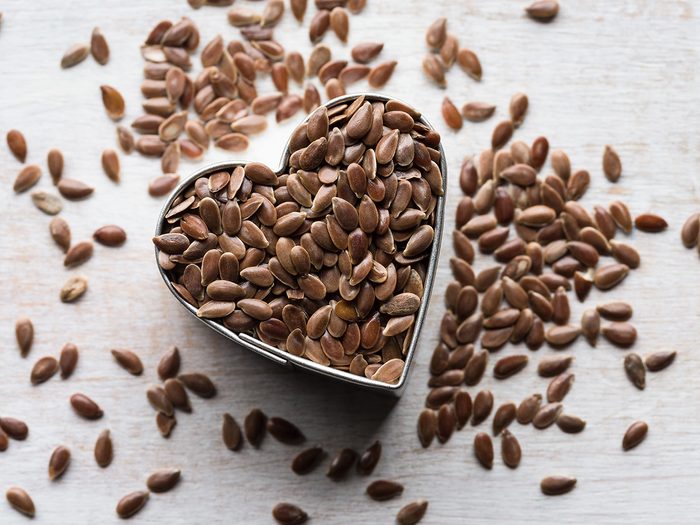
The lifestyle fix
Popping an ibuprofen can ease breast soreness (and menstrual cramps). You can also sprinkle a little flaxseed (the actual seed, not the oil) onto your morning cereal, on a salad or bake it into a muffin to get some relief, as a study found it relieved pain when taken daily for three months. In fact, The Society of Obstetricians and Gynaecologists of Canada recommends considering flaxseed as a first line of treatment for breast tenderness. It’s also a smart solution for relieving constipation.
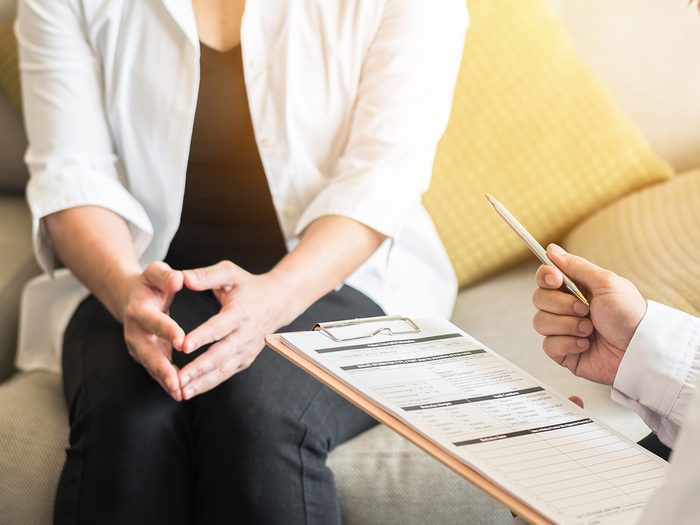
If you need extra help
If a heavy flow is cramping your style, see your doctor. Depending on your personal health profile, she may recommend birth control pills or hormone therapy. Taking progesterone has been shown to help bridge the perimenopause-menopause transition — and may be preferred to the estrogen-containing options (or synthetic alternatives to progesterone) that were used in hormone replacement therapy decades ago. These were shown to be associated with an increased risk of breast cancer, clots and stroke. Progesterone, on the other hand, may ease all of your symptoms.
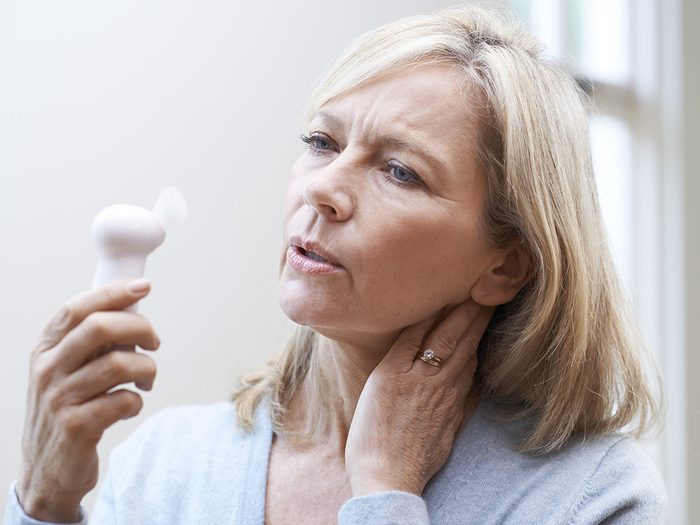
Symptom 3: Hellishly hot
Your hot flashes could warm the neighbours — if only you could use that power for good. Instead, you wake up drenched and radiating. And if that interrupted sleep wasn’t enough, what about feeling the heat mid-meeting? It’s professional to fan yourself at the boardroom table, right?
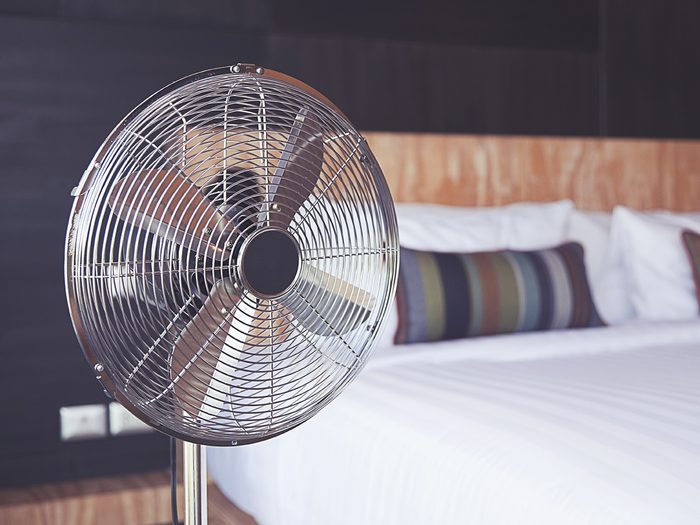
The lifestyle fix
Turn down the heat by turning up a healthy lifestyle. That’s right: being active, maintaining a healthy weight and not smoking can all help reduce hot flashes and night sweats. How else can you manage things naturally? “Try dressing in layers or wear moisture-wicking clothing,” says Pearlman. “At night, sleep with a fan on in the bedroom.” She also recommends black cohosh, a botanical supplement that not only helps relieve hot flashes, but also mood swings, irritability and cramping. Red clover and rhubarb extract may also help cool things down. Ask your doctor what form and dosage would work for you.
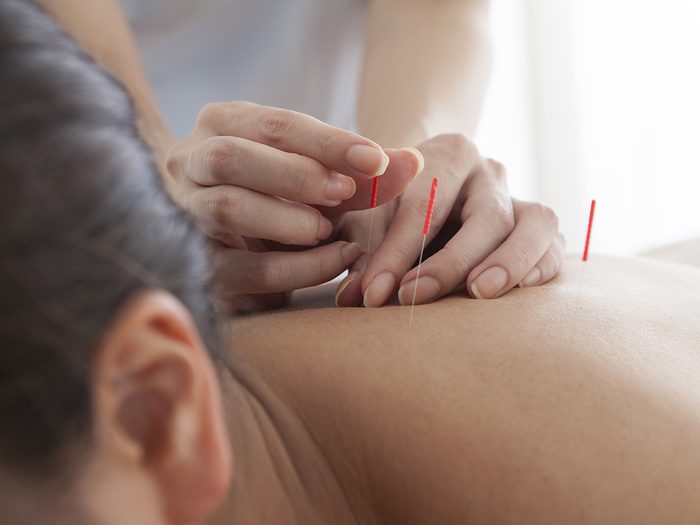
If you need extra help
Still feeling the heat? Pearlman points to acupuncture. “It helps on the stress side,” she says, “and it may lead to fewer or less intense hot flashes.” It’s also worth investigating hormone therapy and even antidepressants. “Certain antidepressants are effective treatment for a woman who’s flashing,” confirms Pearlman. “Plus, they can help with mood and anxiety.” Your doctor can help you figure out which options are right for you. She says there are also non-hormonal meds available from your doctor that can be very helpful with flashes and other symptoms, typically for women where estrogen is contradicted or to boost the effects of hormone therapy.
Nervous about trying acupuncture? Here’s what it’s really like.

And in case you’re wondering: The stages of pre- and post-menopause
Early perimenopause: Progesterone levels start to fall and estrogen may rise. You may skip periods, have shorter, heavier cycles and hot flashes, wicked PMS and a fuzzy memory, among other fun (not) symptoms.
Late perimenopause: You can now blame the hot flashes on falling estrogen levels. Expect a lot more skipped periods.
Menopause: The big M is officially diagnosed after you’ve gone 12 consecutive months without a period, for no other biological cause. It can occur in women in their 40s or younger, but the average age is 51. Symptoms tend to disappear, but a lot of women can experience vaginal dryness.
Postmenopause: Symptoms such as hot flashes peak in the year or two after menopause and lower levels of estrogen increase the risk of health conditions such as heart disease and osteoporosis.
